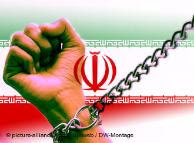skip to main |
skip to sidebar
سخنرانان ايراني در " انستيتو هوور" , شهرام چوبين, عباس ميلاني,آرش نراقي,
فاطمه حقيقت جو, مهرانگيز كار, پرديس مهدوي

The Office of Iranian Affairs (OIA) was created in early 2006 within the U.S. State Department's Bureau of Near East Affairs, apparently as part of an effort to channel funds to groups that could aid opposition factions within Iran. The OIA is often confused with and/or compared to the controversial Office of Special Plans (OSP), the neoconservative-led outfit in the Pentagon that was accused of supplying warped intelligence to the George W. Bush administration during the lead-up to the invasion of Iraq. But the OIA seems to have little resemblance to its Pentagon relative: it does not appear to have an intelligence interpretation role; it serves the State Department; and it is not under the control of core neoconservatives. However, as news about the relatively obscure OIA has gradually surfaced, it seems clear that it and the OSP share an important characteristic—both were meant to play a role in fomenting regime change in the Middle East.
The first hard news about the OIA emerged on March 3, 2006, when Adam Ereli, deputy spokesman for the State Department, responded to a reporter's question about the office. After confirming the creation of the office, Ereli said: "We have also created a number of new positions in the field—for Foreign Service officers to work on Iran-related issues. This comes in the context of the secretary's broader initiative regarding transformational diplomacy and is part of our overall effort to realign resources with policy priorities in recognition of a changing world, a world that is far different from the one for which we have been geared to deal for the last generation, really."
Regarding the "new positions in the field," Ereli said: "There will be a certain number here in Washington, in the Bureau of Near Eastern Affairs, where the Office of Iranian Affairs is located, as well as the Department of Human Rights and Labor, and to administer—and a lot of these will be—some of these positions will be involved with administering the $75 million that we hope to get from Congress to promote empowerment and democracy and flow of information and citizen exchanges in Iran, and others will be in the field to support these programs, as well as to get a better idea and a better handle of what's going on in Iran."
Asked whether the new department will "bring in Iranian exiles," Ereli said: "The way I would look at this office, frankly, is—and this deployment is administering programs and conducting activities that are consistent with programs and activities that we do around the world. In other words, you've got an office that deals with, let's say, Russia. We've got programs in Russia, we've got money we spend with Russia, we've got exchanges with Russia, so you need people to run those programs, interact with NGOs and others. We're going to be doing the same thing with Iran. If you look at the rationale and the description of how we are going to spend the $75 million, that entails a certain amount of expertise, of labor, of engagement. And the other point to make here is that—look out over the long term. Iran is and is going to continue to be a very important country. We need to develop a cadre of Foreign Service officers who speak Farsi, who understand the region—not just Iran, but the region where Iran has influence and has reach—and understands Iran. So that's the logic of putting people out in the field, to use the language, to develop the on-the-ground expertise so that 10, 15, 20 years from now, we've got—just like we have Arab experts, just like we have—we used to have Soviet experts, we've got a cadre of Iran experts."
An unclassified State Department cable, dated March 6, 2006 and posted on the blog of the American Progress Action Fund, ThinkProgress.org, said that the office is part of an "initiative [that] will enhance our capacity to respond to the full spectrum of threats Iran poses, to reach out to the Iranian people to support their desire for freedom and democracy, over the long-term, reestablish a cadre of Iran experts within the Foreign Service. Additionally, these new positions are part of the Global Diplomatic Repositioning Strategy to support transformational diplomacy and the President's Freedom Agenda
آشنائي با "مايكل ليدن"Michael Ledeen
يكي از اعضاي تعين كنندهAmerican Enterprise Institute: Freedom Scholar دنباله مطلب
دنباله مطلب
آشنائي با خانم رايس وزير امور خارجه آمريكا و پستها و مقامات مختلف از جمله
"انستيتو هو ور " و " آمر يكن آنتر پرايز انستيتو " و... ( AmericanEnterpriseInstitute (AEI  دنباله مطلب
دنباله مطلب


 دنباله مطلب
دنباله مطلب دنباله مطلب
دنباله مطلب





